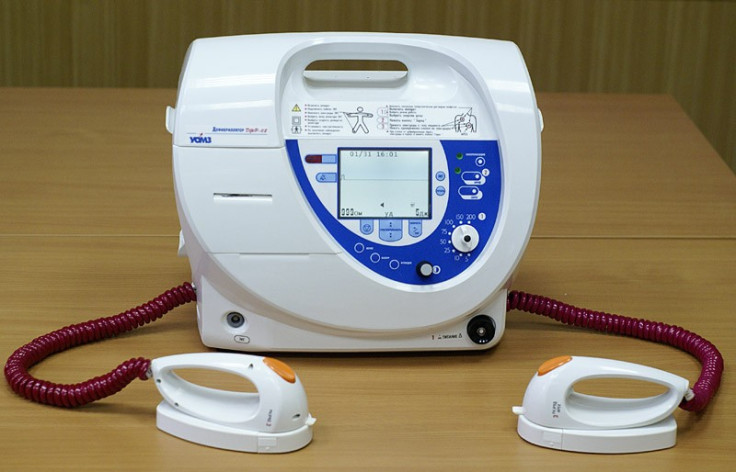Nine in Ten Would Not Use Defibrillator in Life-Threatening Emergency

In the majority of life-threatening emergencies, defibrillators would not be used to help save someone's life.
Research by defibrillator manufacturer Doc UK found that just 15 percent of survey respondents said their workplace had a defibrillator.
Of those who said there was a defibrillator, just 44 percent said they knew how to use it, while 11 percent said that even though they had received training, they would not use it in a genuine emergency because of lack of confidence.
Most respondents said they would not use a defibrillator to save someone because of a lack of education and misplaced fears.
Many people believe a defibrillator will only work on someone who is having a genuine heart attack, while 61 percent said they were worried about injuring the person in trouble, or being held liable if something went wrong.
A third of people said they would never use a defibrillator under any circumstance.
Vincent Mathieu, managing director of DOC UK, said: "With 124,000 heart attacks a year in the UK touching people of all ages and physical conditions, defibrillators are essential equipment.
"However they do no good if they are not used. It's vital that companies have an on-site defibrillator that their staff will be confident to use in case of an emergency."
High-tech wall decoration
Dr Sarah Brewer said: "The ideal scenario is for defibrillation to be carried out by a trained paramedic; however, time is of the essence.
"The convention is for people to be referred to as 'brain-dead' just four minutes after a cardiac arrest, and yet the target response time for an ambulance is eight minutes. This is why defibrillators at workplaces are essential.
"It's also essential that people know how to use them and aren't too scared to use them - otherwise they are no more than a high-tech wall decoration."
Only 10 percent of respondents said they would use the defibrillator first if they thought a colleague was having a heart attack.
Four in ten said their first response would be to either call an ambulance, find a first-aider, ask someone else to take over or ask others what to do.
Doc UK clinical director Dennis Ferriday said: "As a practising clinician, I often work within companies where the staff is reluctant to use workplace defibrillators.
"This reluctance often centres on concerns about whether the defibrillator would actually work if they used it and their feeling of isolation when initially attending the casualty."
Mathieu added: "If a paramedic is unable to arrive in time, a defibrillator could be the only way to prevent a colleague from dying."
© Copyright IBTimes 2025. All rights reserved.






















